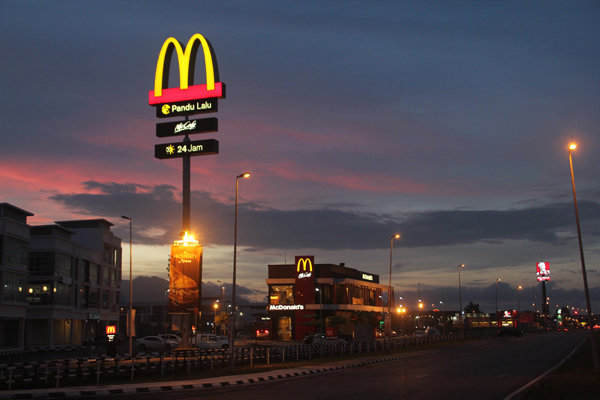
MCDONALD’S Malaysia touched off a firestorm when it banned cakes not certified as “halal” by Jabatan Kemajuan Islam Malaysia or JAKIM colloquially, from its restaurants a few weeks ago.
This decision by the popular fast-food outlet in Malaysia has struck a nerve centre in multi-cultural Malaysia, sparking a war of words online and in the news. Riding on this delirium, netizens have both condemned the outlet and defended it, showing alarming hostility on social media and beyond.
This is but the latest of incidents starring JAKIM and other Islamic authorities that have caused concern and unease among Malaysians as well as exposing the faultlines between conservative Islam in Malaysia and mainstream Malaysian status quos.
Some examples of incidents that immediately come to mind are the Auntie Anne, Ninja Joe, and Pokemon Go incidents.
Fact check
I disagree with the Center for a Better Tomorrow’s (CENBET) statement that JAKIM’s halal certification only applies to food and beverages served by the halal-certified restaurants them-selves. In actuality, non-halal food and beverages are not allowed within the premises of halal-certified eateries according to article 6 of section 5.5 of the Manual Procedure for Malaysia Halal Certification (Third Revision) 2014.
Halal Certification difficult and expensive
However, the issue lies with the nature of the ban. A blanket ban towards all cakes not certified by JAKIM can be considered ill-advised as not many cakes are actually
certified halal to begin with. Undoubtedly, not all cakes are halal as a handful are made with alcohol which makes them definitely haram.
However, the vast majority of cakes are made with halal ingredients such as sugar, milk, eggs and flour. Adhering to societal norms, bakeries will definitely make clear and apparent that certain cakes contain alcohol. Furthermore, it is no stretch of the imagination to correctly assume that cakes for children’s birthdays wouldn’t contain alcohol as those cakes are specifially tailored for child consumption.
Furthermore, the halal certification process by JAKIM is both arduous and costly. Few bakeries (including Muslim-operated bakeries) actually possess such certification as most are unable to meet its stringent requirements and find it unnecessary. The accreditation process itself takes months – and fees up to RM10,000.
Additionally, halal certification by JAKIM does not include home-made products as it requires production to be an independent and separate-from-home premise.
Alternatives potentially dangerous
Earlier on, the Malaysia International Institute of Islamic Cooperation (IKIAM) had announced plans to issue two different product certification logos. One would certify that a product is made by Muslims and the other to denote that a product is Muslim-made and halal.
IKIAM had proposed to issue these new logos for free to enable small-to-medium Muslim-owned enterprises to obtain alternative certification. Even though IKIAM still has to seek endorsement from JAKIM for its proposed logos to be valid, IKIAM’s proposed plans are dangerous as it seeks to further fragmentise and complicate the Halal certification sphere.
Instead of a single authoritative and, most importantly, accessi-ble halal standard, we risk multiple certifications that will serve to further complicate matters. This is notwithstanding the possible racial discrimination IKIAM’s plan might conjure as a consequence of its “Muslim-made” product certification. Surely halal food pertains only to the ingredients, storage, preparation, and condition of food and beverages, NOT the religion of the person preparing the items. In actual fact, many halal food manufacturers involved non-Muslims in the supply chain.
Remove all ambiguity
After this media snafu, it would be wise for McDonald’s to ban cakes outright from their outlets. Due to the reasons stated above, it would be difficult and unnecessary for bakeries to obtain official halal certification from JAKIM.
However, if the halal-certified status of McDonald’s is threatened by the intrusion of these cakes, the restaurant chain itself should partner with halal-certified bakeries to sell their cakes on premise. This would be a win-win situation as McDonald’s get to keep their certification and patrons would be able to order cakes without fear of repercussions.
Interestingly, the Sarawak state government has moved to instruct McDonald’s outlets in Sarawak to lift the cake restrict-ions in line with Sarawak’s stand against racial or religious extremism. This has put McDonald’s and JAKIM in an awkward spot and both must again clarify their positions.
Lastly, JAKIM must surely improve the accessibility and rationale of their halal certification process, to account for future complex situations that might mirror this incident.
